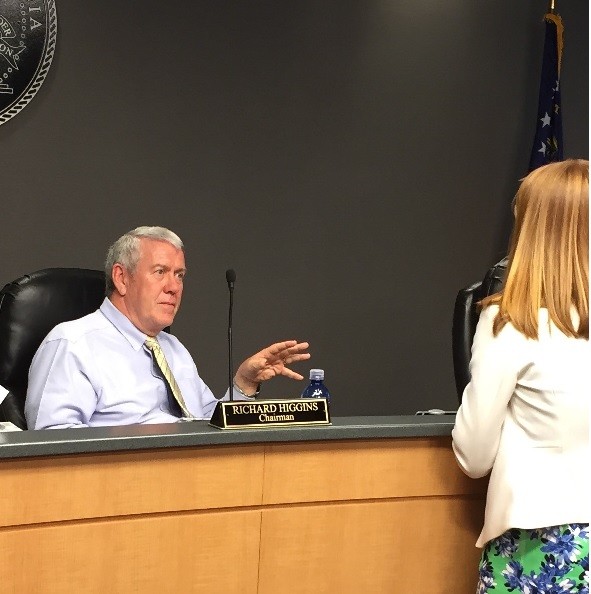Hall County commissioners will hold a final public hearing and subsequent vote on a newly-amended Motion Picture and Film Ordinance at their meeting Thursday evening.
During Monday afternoon's commission work session at the Hall County Government Center, commissioners gave unanimous consent to place the vote on Thursday's agenda, saying the revised document addressed earlier concerns they had voiced regarding overly-strict fees and other requirements they feared would push the film industry out of the county.
"That first draft was very restrictive, and we felt like we need to protect our citizens, but we also need to have a balance and still attract the film industry here," explained commission chairman Richard Higgins after the work session. "So we went through and examined other municipalities and counties and the ordinances they've had, because a lot of them have been doing this a lot longer than we have, and by doing that we came up with a consensus, and came up with a much more palatable document."
A total of 26 communities were evaluated, which Higgins said included Conyers, Savannah and Senoia, a middle-Georgia town that serves as the primary filming location for the popular television show "The Walking Dead."
The ordinance, if approved, would establish regulations for the motion picture industry in Hall County, ensuring that any local filming would not unreasonably impact county residents, while also assuring that any filming-related activities would favorably align with all considerations of public health, safety and general welfare.
Commissioners, in approving the current wording of the ordinance, worked to strike a balance between looking out for the general interests of county residents and not placing overly-restrictive barriers on filming that would likely lead to a down-turn in local film production.
"I guess it's like anything else, we've gotta find a middle ground that everybody can live with," Higgins said. "The way it's written, it can be adjusted, and as we learn...the more experience you have with something, the better you can deal with it."
The opinion of the board regarding the need to "protect [it's] citizens" was shaped, in part, by the past negative experiences of some county residents during locally-based production.
"We had one lady, apparently these people came in and they were on the end of her street, and they were less than responsible in their actions," Higgins said.
Those fears were balanced out with the commissioners' desire to draw more business to the county, which Higgins said could be partly accomplished by making local filming less cost-prohibitive.
"When it first came out, it was very expensive, as far as, like, $500 a day [for a permit]," he noted. According to the revised document, that cost would be lowered to $100 per day, and could be adjusted on a case by case basis.
"It gives us some latitude where, if we need to tighten up something, [we can.] It's gonna protect our citizens from people coming in and just doing whatever, and not being accountable for what they do"
Higgins said the ordinance was largely constructed by the Hall County Convention and Visitors Bureau, in conjunction with the county Business License office.
Regarding Thursday's expected vote on the matter, Higgins said he expects commissioners to pass the revised ordinance without issue.
"I think everyone's pretty much on board with it," Higgins said. "I think everyone was pleased with the way it turned out, and so I don't think there'll be a problem."
The revised Motion Picture and Film Ordinance can be read in full here.

http://accesswdun.com/article/2017/4/523659/revised-motion-picture-and-film-ordinance-nears-vote-in-hall-county-commission
